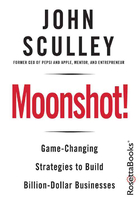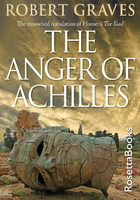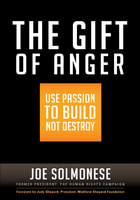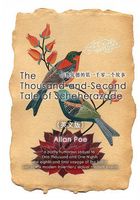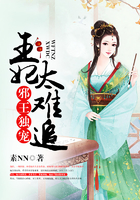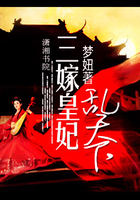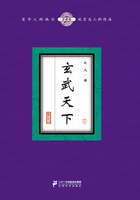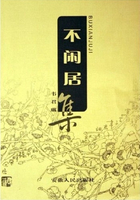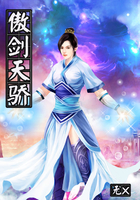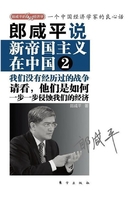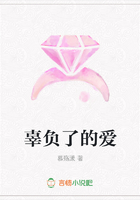This book is about saving America. All of America. Not black folks or Asian, Latino, or Native American folks. It's not about white folks. It's about all of us. As I make the case here, whether you are black, white, red, brown, or yellow, increasingly everyone just wants to see some more green-U.S. currency, that is.
Dr. Martin Luther King Jr. said that the movement of his day and age was intended to "redeem the soul of America from the triple evils of racism, war, and poverty." Interestingly enough, Dr. King's work also was not about black people per se. African-Americans just happened to be at the tip of the spear in the era that began in 1958. Dr. King and my mentor, former UN Ambassador Andrew Young, genuinely thought that we make America better, stronger, more resilient, more valuable, and more valued when the nation has the benefit of everyone rowing in the waters of prosperity, dignity, and human aspiration. By 1968 Dr. King had turned his attention to a Poor People's Campaign that involved and sought to engage the whole of America, every race. The reality is that there are more poor white people in America than poor anyone else.
This book focuses on the challenges and, more important, the economic opportunity for America. Not opportunity for the 99 percent or the 1 percent but opportunity for the 100 percent that makes up our collective whole and our strength as a nation. By extension, I hope to inspire a generation of leaders, here and around the world, to act on things they might have previously thought unsolvable.
We step into a minefield of perspective and controversy when we say we set out to radically reimagine the solution to poverty. And we go even further when we seek to redefine our collective understanding of poverty itself. This book is meant to be bold, to turn so-called social and societal norms on their heads.
My radical reimagining of the definition of poverty is what I call the HOPE Doctrine on Poverty. This approach to defining poverty is a departure from the status quo, because the current definition, respectfully, misses the point completely. It is limited by its sole commitment to numbers. But if we restrict the notion of poverty to a purely statistical interpretation, as our government is understandably required to do, we miss the human element.
As I speak about poverty, I am an outlier. In so doing, there are some things I am not going to do:
I don't intend to argue about absolutes.
I am not an economist. I do not hold a degree in economics. So I don't intend to opine on academic theory. We have enough credible theory already in circulation, and this is not an economics textbook or an academic treatise.
This is not polemic intended to stake a claim to philosophical territory. I do not hold a degree in philosophy, either.
And let me make this clear: this book is not about socialism, and it is definitely not about communism. Communism has failed completely, and socialism simply cannot work in the United States. Government has its place in our society, but we must all remember that 92 percent of all jobs in the United States come from the private sector. Even China, a communist country, has chosen capitalism. I have come to believe that capitalism is a horrible system-except for every other system. And no one has ever tried to make free enterprise and capitalism work for the poor and others left out and left behind in America, at scale.
This book is nothing if not practical. And so is my definition of poverty. After growing up as part of the teetering class in South Central Los Angeles and Compton, California; after being homeless at the age of eighteen; and after working over the past twenty-two years with everyone from the working poor to the working class to the struggling middle class, in the offices of Operation HOPE, I feel as though I understand modern poverty.
The HOPE Doctrine on Poverty says that there are three things that define poverty and struggle more than any set of financial numbers ever could: self-confidence, self-esteem, and belief in oneself; role models and environment; aspiration and opportunity. Or the lack of these things.
Self-confidence, self-esteem, and belief in oneself. In this country, if you wake up in the morning and you don't know who you are, by dinnertime someone will tell you who you are. If you don't have self-confidence, you are in serious trouble in America-and maybe anywhere.
Role models and environment. Think about your family and your immediate community. If your role models are negative, the only aspiration you see around you is illegal, and if your immediate environment stinks, then your well-being is going to take a real hit.
When we think about this, why is anyone surprised if innercity youth grow up wanting to be rap stars or athletes-with no disrespect intended to either of these professions-or, unfortunately, drug dealers? Life is very simple: you model what you see. These kids are not dumb; they are brilliant. They are modeling what they see.
Finally, life is about aspiration and opportunity. If you don't have the opportunity, the chance, the shot at operationalizing your smarts, your talents, or your education, then life has a concrete ceiling rather than a glass one. You feel that all is for naught, so why try in the first place? You lose hope, and the most dangerous person in the world is a person without hope.
Harvesting in the Plot of the Poor
As I look for real, sustainable solutions to the poverty and lack of opportunity I see every day during my work at Operation HOPE, I have come to a strange conclusion: We have most likely locked up and thrown away the key to some of the very character traits that are required to stand up a community, create an emerging market and jobs, and grow local economies. We have actually tossed away the portion of society that we need to save it, leaving the elderly, the infirm, the young, broken families, or the traditional job striver to save a faltering community.
What would happen if all of these otherwise brilliant young people, whose main role models for "success" in their communities are drug dealers, rap stars, or athletes, instead were given a proper business role model or a business internship? Maybe it would change everything.
It did for me.
There is a complete disconnect of the capitalist system from "the least of these," and this disconnect weakens the system for the very people who think the poor aren't their problem. Locking people out-denying them access to information, finance, and opportunity-is what happens when capitalism is lazy. Retreating behind our gates is what happens when capitalism is scared. On the other hand, a harvest in the plot of the poor is what can happen if we are all willing to do the real, sustainable, transformational work that builds a nation.
Harvesting in the plot of the poor has two sides. We invest our time and our finance, yes, and our investment may be based on our beliefs and desires, but we must also respect that the plot itself belongs to the poor, the underserved, the struggling classes. That plot may contain only their ideas or their sweat equity in the form of time, energy, and commitment to advancement, but whatever it is, it must be respected as theirs. It must be valued, and it is valuable.
What I am talking about is creating an amazing bumper crop that sends gross domestic product and the stock exchange through the roof, and that is as American as apple pie. In fact, it's a pie that creates more pie. But to get that pie, we must first plant, water, nurture, and harvest the apples.
The fact is, we have done this before. This humble cultivation of and commitment to finding everyone's talent is where America began. We have not always been well-to-do or able to walk away from ourselves and each other. We once needed each other. Desperately so. America the beautiful as we now know it was once made up of the broke and the under-resourced, a mostly immigrant population that came here to escape oppression and a limited life somewhere else. This is something to remember, by the way, when someone is talking about those "illegals." America is a grab bag of immigrant vagabonds from the world over, and a majority of her most amazing entrepreneurship success stories are also stories of struggling immigrants. These are the people who produced a country that is now the envy of people all over the world who still want to come here.
But we have been comfortably riding this wave for far too long, and now it is time to produce a new harvest.
Andrew Young often says to me, "Men fail for three reasons: arrogance, pride, and greed." All three of these things are rooted in insecurity and fear, and doing the wrong or utterly selfish thing most often happens when fear and insecurity overtake our being, our inner reason. The key to winning is to get over these insecurities and fears, to first conquer ourselves and to learn to become reasonably comfortable in our own skins. I cannot like you, love you, or respect you unless I like, love, and respect myself first. But the dangerous other side of this is also true: if I don't have a purpose in my life, I am going to make your life a living hell. The poor and the underserved must be given a stake in this thing we call America or I promise you they will tear it up-right before they tear it down. This is not an alarmist statement. The most dangerous person in the world is a person with no hope.
So I am not suggesting that we cultivate the plot of the poor because it is morally right, even though it is, but because it just makes good, sustainable sense. We must do it because it is the only thing left to do that has half a chance of working and of benefiting both the powerful and the dispossessed alike. Far from being a dilemma, then, the decision to include the poor is both obvious and necessary. Unless we want to hand over to our children a world that has simply come off the rails of sanity, it is in the enlightened self-interest of us all to make the right decisions now.
This book is about saving America and returning her to her original promise, her original founding ideas and ideals. It is about planting, nurturing, and growing a sustainable middle class, creating once again what my friend Steve Bartlett, former president and CEO of the Financial Services Roundtable, calls a "light on the hill." This is a place where the new, twenty-first-century definition of freedom is expressed as self-determination-the opportunity that comes from one's own hands and one's own bold ideas connected to action, personal risk, personal investment, and hard work. This book is about creating a new, sustainable business plan that returns this country to its original big, bold, audacious dream. This idea is both utterly liberal and the very definition of conservative at the same time.
If I give a homeless man a million dollars, there's a pretty good chance he will be broke and homeless once again in, say, six months, because he has not been given the additional nurturing or resources that would enable him to create a different path for himself. Sympathy has its place, and pure charity is absolutely necessary and essential, maybe more so today than at any time in recent history. But only an intelligently applied approach of empathy, rather than a liberally spread dose of sympathy, is sustainable with respect to national policy and a competitive market economy.
America is not a country; it is an idea. And we can reimagine it to be anything we like.

